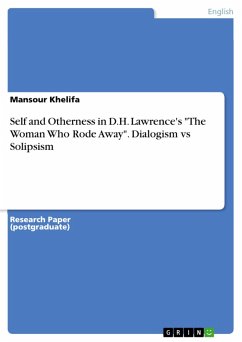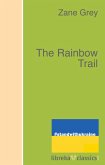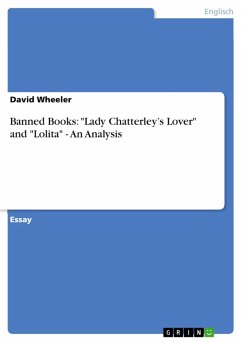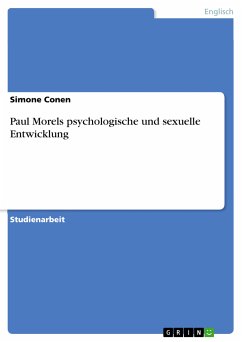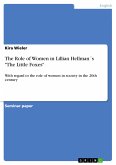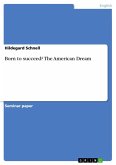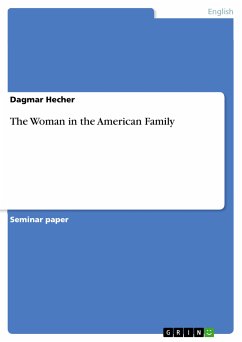This study proposes to examine D. H. Lawrence’s The Rainbow and Women in Love as expressions of his thinking on modern civilization. The two main essays on the novels are preceded by an inordinately long “Introductory” chapter and followed by a relatively brief “Epilogue: Reflections on The Plumed Serpent.” The Introduction, which touches on a variety of topics, nevertheless attempts a sustained and consistent discussion of how Lawrence’s non-fictional work amounts to a body of cogent presentations and expositions of the thought-adventure most notably enacted by The Rainbow and Women in Love. The Epilogue’s reflections antedate the discourse of ‘post-colonialism’ and did evoke a number of post-colonialist themes.
Changbi Publishers
-----------------------------
Paik’s thesis remains a highly sophisticated vade mecum for reading Lawrence and, given its critical and intellectual heft, its lucid accessibility is equally remarkable. — Michael Bell, author of D. H. Lawrence: Language and Being and Professor Emeritus, University of Warwick
Why should we read D. H. Lawrence today? Nak-chung Paik has provided an answer to that question in this book of startling originality. — Ariel Dorfman, author of Death and the Maiden and Distinguished Professor Emeritus of Literature, Duke University
-----------------------------
About the author:
Born in Korea in 1938 , Paik Nak-chung (also known as Nak-chung Paik in the English-speaking world) went to the United States after finishing high school in Seoul, received a B.A. (1959) from Brown University, Providence RI, and an M.A. (1960) and Ph.D. (1972) in English Literature from Harvard University, Cambridge MA. He joined the faculty in the English Department of Seoul National University in 1963 . In 1966 , he founded the literary-intellectual journal The Changbi Quarterly. As its editor and practicing critic, Paik has spearheaded the cause of national literature, while working to promote a systematic understanding and overcoming of what he calls the division system on the Korean peninsula. As a consequence, he often suffered persecution from the government, being dismissed from Seoul National University in 1974 for signing a demand for a democratic constitution, only to be reinstated in 1980. Also, The Changbi Quarterly was banned from 1980 to 1988.
Paik Nak-chung has authored numerous books in both literary criticism and social criticism. His more recent works The New Stage of National Literature(1990), Rewards of Korean Literature in the Age of Reunification(2006), The Path of Practice for Transforming the Division System(1994), The Division System in Crisis(1998), Unification Korean-Style, Present Progressive Tense(2006), Where Is the Middle Way and Wherefore Transformation?(2009), Questioning Again What Is Literature(2011), and D. H. Lawrence: Western Thinker of the ‘Great Opening’(2020). Paik has also published the seven-volume Conversations with Paik Nak-chung(2017), and in English, The Division System in Crisis: Essays on Contemporary Korea(University of California Press 2011).
Currently he serves as editor emeritus of The Changbi Quarterly, professor emeritus at Seoul National University, and honorary co-chair of the Korea Peace Forum, and continues to produce essays and columns of literary, social, and political analysis.
Changbi Publishers
-----------------------------
Paik’s thesis remains a highly sophisticated vade mecum for reading Lawrence and, given its critical and intellectual heft, its lucid accessibility is equally remarkable. — Michael Bell, author of D. H. Lawrence: Language and Being and Professor Emeritus, University of Warwick
Why should we read D. H. Lawrence today? Nak-chung Paik has provided an answer to that question in this book of startling originality. — Ariel Dorfman, author of Death and the Maiden and Distinguished Professor Emeritus of Literature, Duke University
-----------------------------
About the author:
Born in Korea in 1938 , Paik Nak-chung (also known as Nak-chung Paik in the English-speaking world) went to the United States after finishing high school in Seoul, received a B.A. (1959) from Brown University, Providence RI, and an M.A. (1960) and Ph.D. (1972) in English Literature from Harvard University, Cambridge MA. He joined the faculty in the English Department of Seoul National University in 1963 . In 1966 , he founded the literary-intellectual journal The Changbi Quarterly. As its editor and practicing critic, Paik has spearheaded the cause of national literature, while working to promote a systematic understanding and overcoming of what he calls the division system on the Korean peninsula. As a consequence, he often suffered persecution from the government, being dismissed from Seoul National University in 1974 for signing a demand for a democratic constitution, only to be reinstated in 1980. Also, The Changbi Quarterly was banned from 1980 to 1988.
Paik Nak-chung has authored numerous books in both literary criticism and social criticism. His more recent works The New Stage of National Literature(1990), Rewards of Korean Literature in the Age of Reunification(2006), The Path of Practice for Transforming the Division System(1994), The Division System in Crisis(1998), Unification Korean-Style, Present Progressive Tense(2006), Where Is the Middle Way and Wherefore Transformation?(2009), Questioning Again What Is Literature(2011), and D. H. Lawrence: Western Thinker of the ‘Great Opening’(2020). Paik has also published the seven-volume Conversations with Paik Nak-chung(2017), and in English, The Division System in Crisis: Essays on Contemporary Korea(University of California Press 2011).
Currently he serves as editor emeritus of The Changbi Quarterly, professor emeritus at Seoul National University, and honorary co-chair of the Korea Peace Forum, and continues to produce essays and columns of literary, social, and political analysis.


